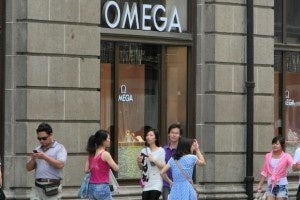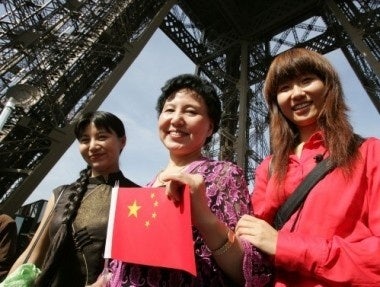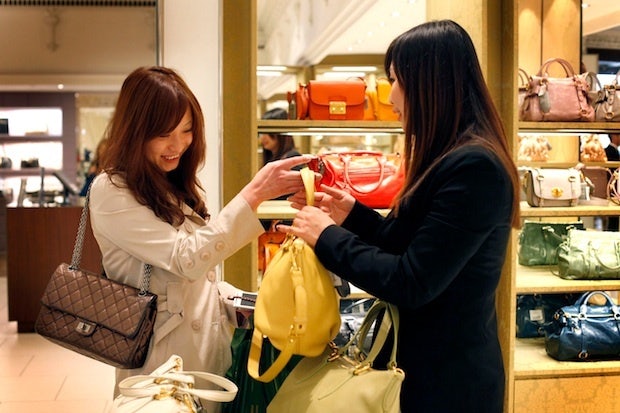August Sales Grew Lower-Than-Expected 4.5 Percent To HK$35.8 Billion (US$4.6 Billion)#

Though mainland Chinese tourists continue to flock to nearby Hong Kong for duty-free shopping sprees -- more than 28 million visit the city every year -- lower-than-expected statistics for the first three-quarters of the year indicate that these travelers are doing more of their luxury consumption elsewhere. According to a Hong Kong government statement, August retail sales rose 4.5 percent to HK$35.8 billion (US$4.6 billion), up from a 3.9 percent increase in July but lower than Bloomberg's 5.8 percent estimate. At the higher end of the market, sales of jewelry, watches, clocks and luxury gifts dropped 3.4 percent in August from one year prior, which is even more dramatic considering these sales rose 53 percent year-on-year in August 2011.
As Hong Kong-based economist Raymond Yeung told BusinessWeek today, “Mainland Chinese shoppers’ appetite has declined this year and this is particularly reflected in luxury sales." Added Yeung, "We won’t see a strong revival of Hong Kong retail sales until a fully fledged recovery of the Chinese economy is seen.”
Results from August are largely in line with disappointing sales figures seen earlier in the summer. However, as the Wall Street Journal wrote this past May, "While demand in Hong Kong may have flagged, it has hardly gone away. 'If last year, they bought 10 watches, now, they're buying eight,' says [Karson Choi, chairman of luxury-watch retailer Halewinner Group] of his mainland customers."
Lower-than-expected sales are certainly disappointing for Hong Kong retailers and tourism officials, but we'd say this reflects not a drop in luxury demand but rather highlights the global spread of the Chinese luxury consumer. Though some Hong Kong-bound mainland Chinese tourists may hold back on high-end consumption, others -- put off by long lines at Tsim Sha Tsui luxury flagships, treatment from some Hong Kong locals, and the greater ease of obtaining visas to Europe or the US -- are just headed elsewhere. As the WSJ pointed out, "Nine years after mainland China first began granting individual visas for mainland Chinese to visit the city, Hong Kong is no longer such an exotic destination."

Indeed, the global spread of the Chinese outbound tourist has been keenly felt in popular destinations like France, where formerly Hong Kong-bound luxury shoppers are now doing a growing proportion of their spending. According to Le Figaro, Chinese tourists in France spend an average of US$1,900 apiece per trip, and the country expects this big-spending demographic to increase from 900,000 visitors in 2011 to 4-5 million by 2015. According to You Jinzhang, chief executive of HHtravel, "The (weakness) of the euro and the pound, plus the post-Olympic effect, is increasing the draw of Europe as a tourist destination and enticing wealthy Chinese to shop in Europe." This outbound tourism boom has also helped the US, with Shao Qiwei, head of China's National Tourism Administration, recently saying that Chinese tourists spent a total of US$7.7 billion in the United States in 2011, an average of $7,107 per person.
Taking advantage of greater ease of international travel and the cost benefits of a rising yuan, observers expect that the preference many wealthy mainland Chinese have for buying luxury items in their countries of origin, rather than in Hong Kong, will gain strength. During "Super Golden Week," Hong Kong is expected to take a further retail hit as more Chinese travelers hit Europe and the US. Via Reuters:
"(Overall) sales (for the golden week) can come down by 10 to 15 per cent both in Hong Kong and China," said Lam Tung-hing, a general manager in the retail operation of Oriental Watch Holdings Ltd. He cited economic concerns, but also the preference of many shoppers for London, Paris and New York over Hong Kong and Macau.
